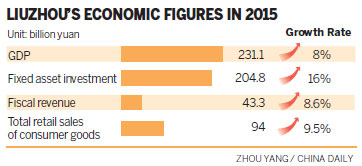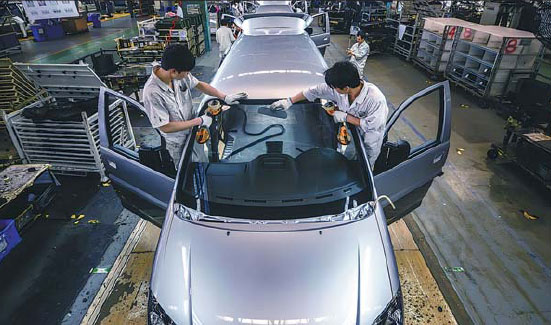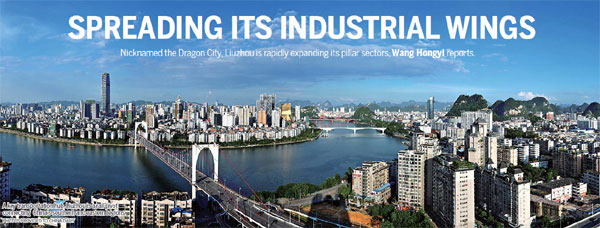Spreading its industrial wings
Nicknamed the Dragon City, Liuzhou is rapidly expanding its pillar sectors, Wang Hongyi reports.
Liuzhou, known in ancient times as Dragon City, is not only renown for its rich history, culture and unique landscapes but also its industrial development.
Located in Guangxi Zhuang autonomous region, at the northern edge of a subtropical zone, the city's total area is 18,600 square kilometers and it consists of six counties and four districts. It has more than 3.8 million residents, with 44 ethnic minorities, such as the Zhuang, Miao, Yao and Dong.
Generations of the Liujiang Zhuang people and Bailian Cave people settled in Liuzhou about 50,000 years ago. Liuzhou was formally established during the Han Dynasty (206 BC-220 AD).

Liuzhou is widely known as a tourist destination, which has played a significant role in regional development. The city's economy output accounts for one-fifth of Guangxi's total.
Its auto, machinery and metallurgy industries are its three largest, with the chemicals, sugar-refining, papermaking, pharmaceuticals, building materials and daily health products its supporting industries.
There is a wholesale market for automobiles and auto parts as well as steel, construction materials and daily-use commodities.
Its wholesale sugar market is one of the biggest for the commodity in China. Prices in the market dictate prices for the sugar industry in the domestic market.
Last year, Liuzhou GDP exceeded 231 billion yuan ($34.8 billion), up 8 percent from the previous year with gross industrial output reaching 457.3 billion yuan, according to the city government.
The city's fiscal revenue reached 43.3 billion yuan, a 8.6 percent increase, and fixed asset investment totaled 204.8 billion yuan, also an increase of 16 percent.
In recent years, Liuzhou has implemented a plan to become a modern livable city, which includes increasing its forest coverage (currently at 65 percent) and green areas within the city, currently at 41.3 percent. Liuzhou is also at the intersection of four main rail routes, three highways and three national highways. Two of the region's major high-speed railway routes stop in Liuzhou.
As a national port, Liuzhou has shipping lines that reach upstream to Guizhou province and downstream to Hong Kong and Macao. Liuzhou Bailian Airport has a capacity of 10 gates and has flights to 18 cities.
In 2004, Liuzhou was honored as the best commercial city on the Chinese mainland by Forbes. In 2013, Liuzhou was listed as the city planning for national Class 2 logistics zone. Enterprises such as Wanda, China Resources, Evergrande Group, Overseas Chinese Town, Haiya, Red Star Macalline and Hydoo have established offices in Liuzhou.
As a key channel for China to access the ASEAN countries and a distribution hub for the southwestern region, Liuzhou is rapidly transforming into a base for trade and transit as well as an important regional logistics and commercial center.
Contact the writer at wanghongyi@chinadaily.com.cn
|
Auto production is one of the pillar industries in Liuzhou, Guangxi Zhuang autonomous region. |
|
A key transportation hub, Liuzhou is a rail pivot connecting China's southern and eastern regions. Photos Provided To China Daily |
(China Daily 05/27/2016 page23)














